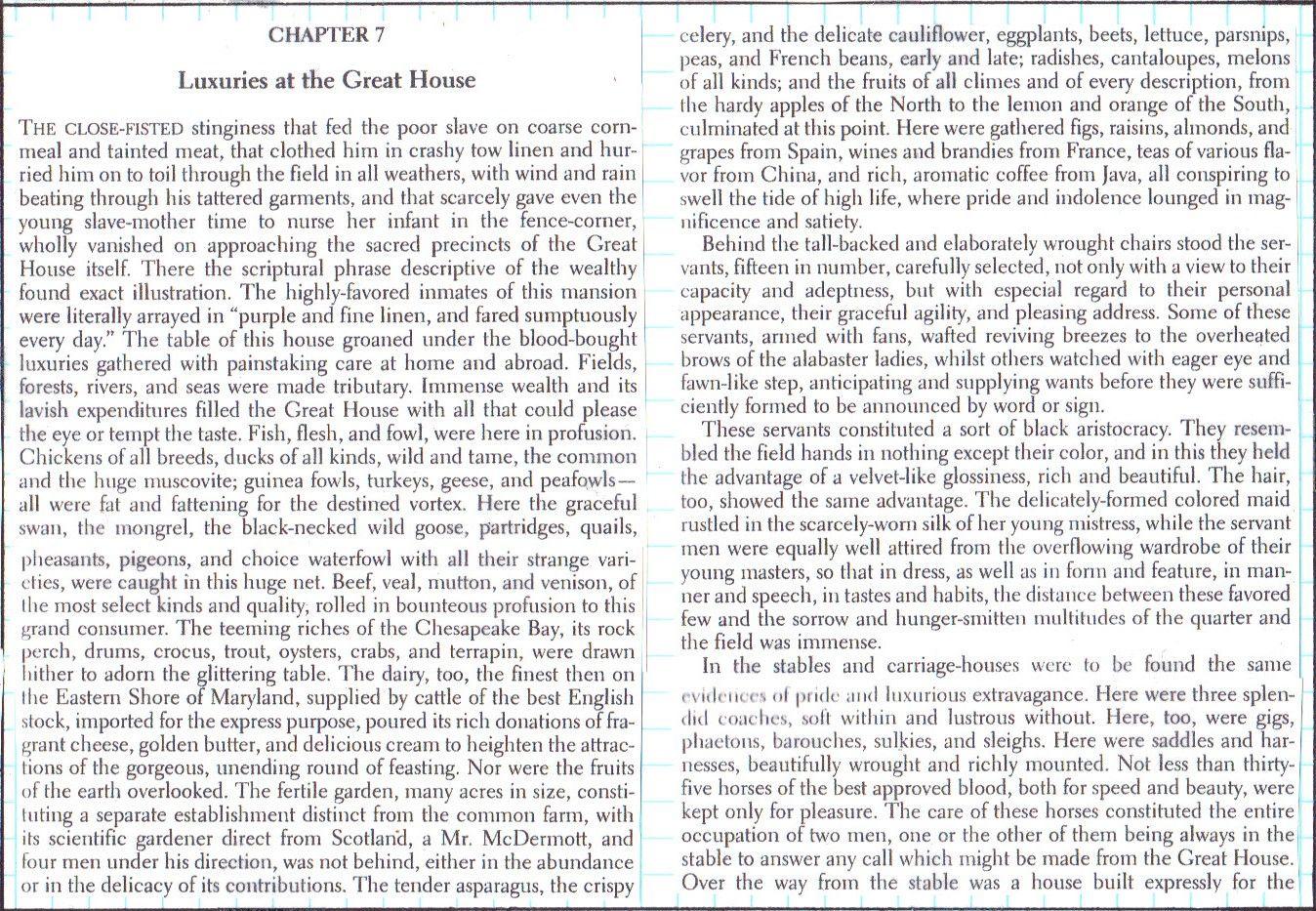
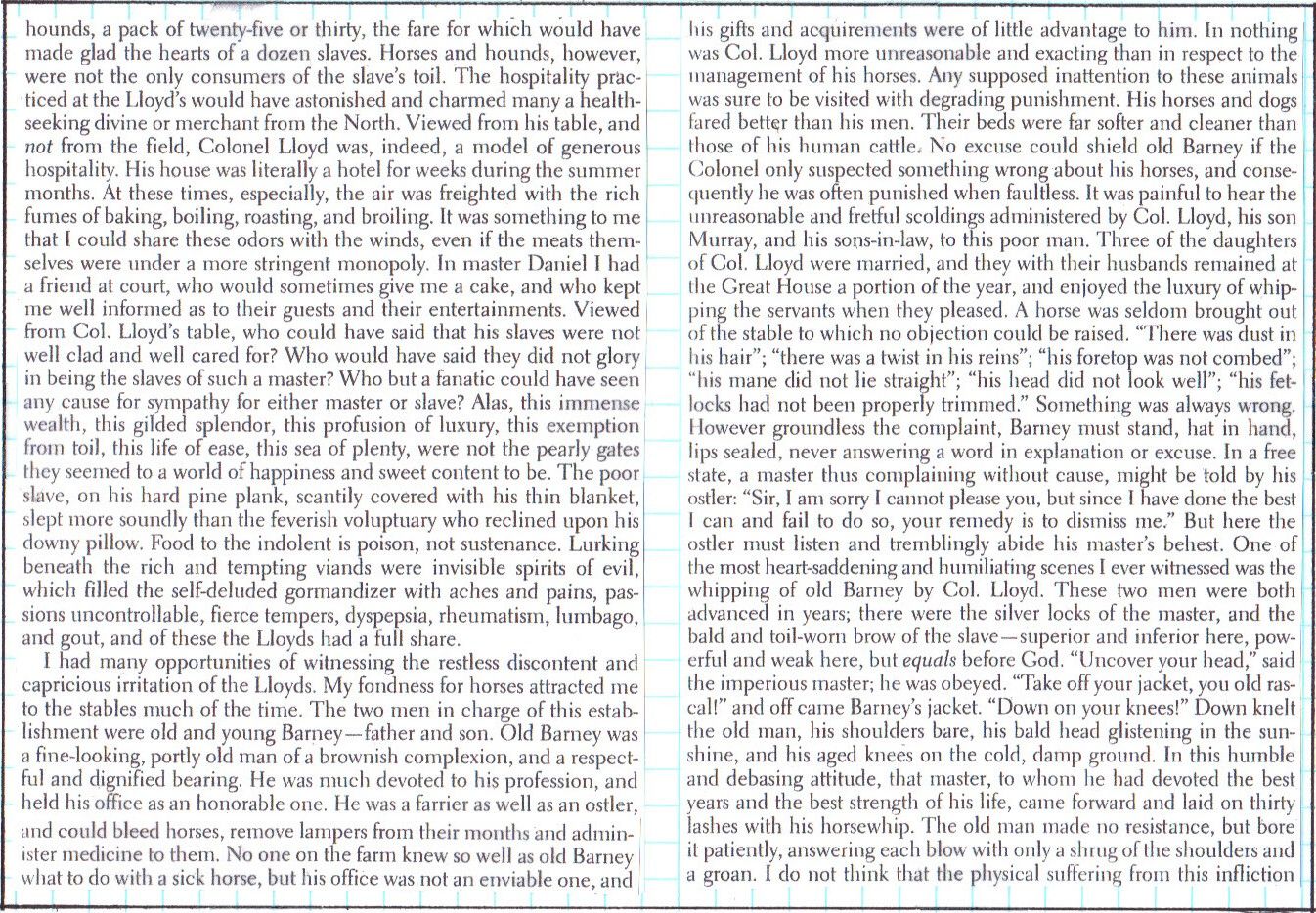
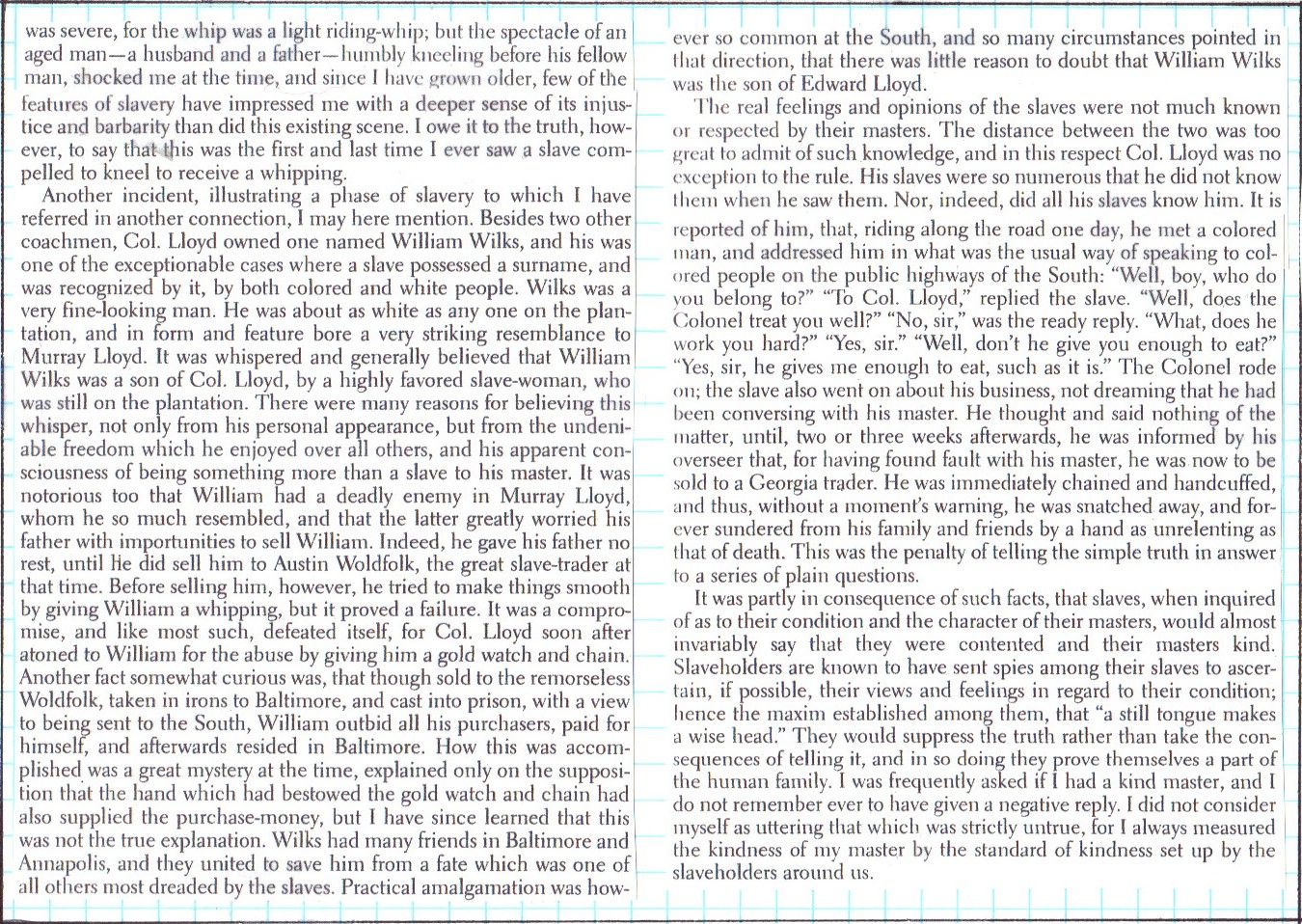
"The Life and Times of Frederick Douglass," by Frederick Douglass, (1892 edition)
Posted on 11/21/2015 11:35:55 AM PST by Homer_J_Simpson
The monthly allowance appears to be on top of subsistence gardening, fishing, etc (recall Grandma Betsy from Chapter 1).
While the living conditions seem harsh by today's standards, they don't strike me as much different from those of poor whites in that era.
Note the monthly corn allowance, a southern dietary staple unwittingly responsible for the scourge of Pellagria http://www.eufic.org/article/en/artid/origins-maize-pellagra/
Good points. I remember reading about the experiment that proved pellagra was a B-vitamin deficiency.



"The Life and Times of Frederick Douglass," by Frederick Douglass, (1892 edition)
Just a note, Homer ... so glad to see you still posting great information and reading material after the backbreaking effort over the last six years. always a great highlight to see my ping list when you’re posting.
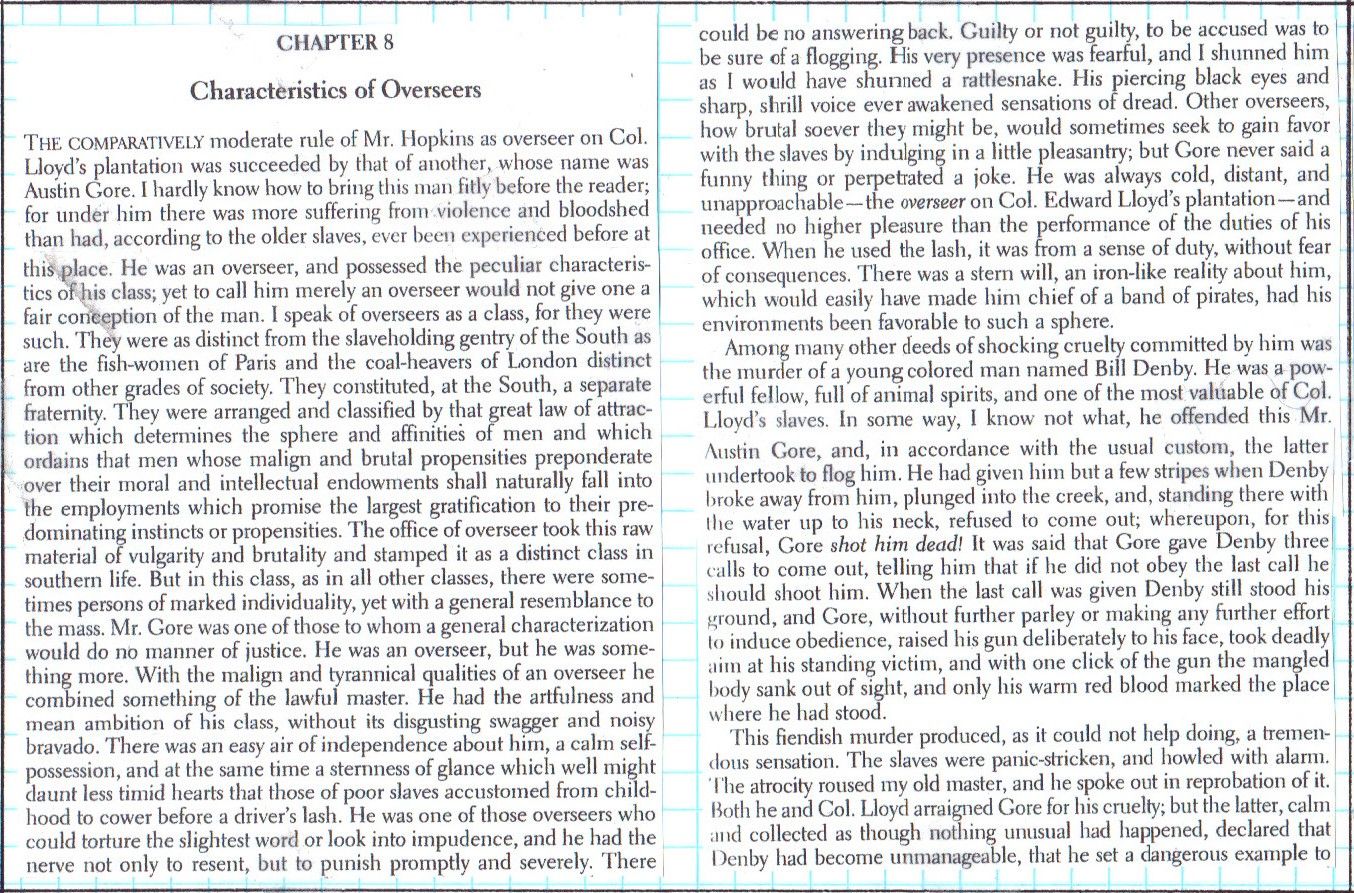
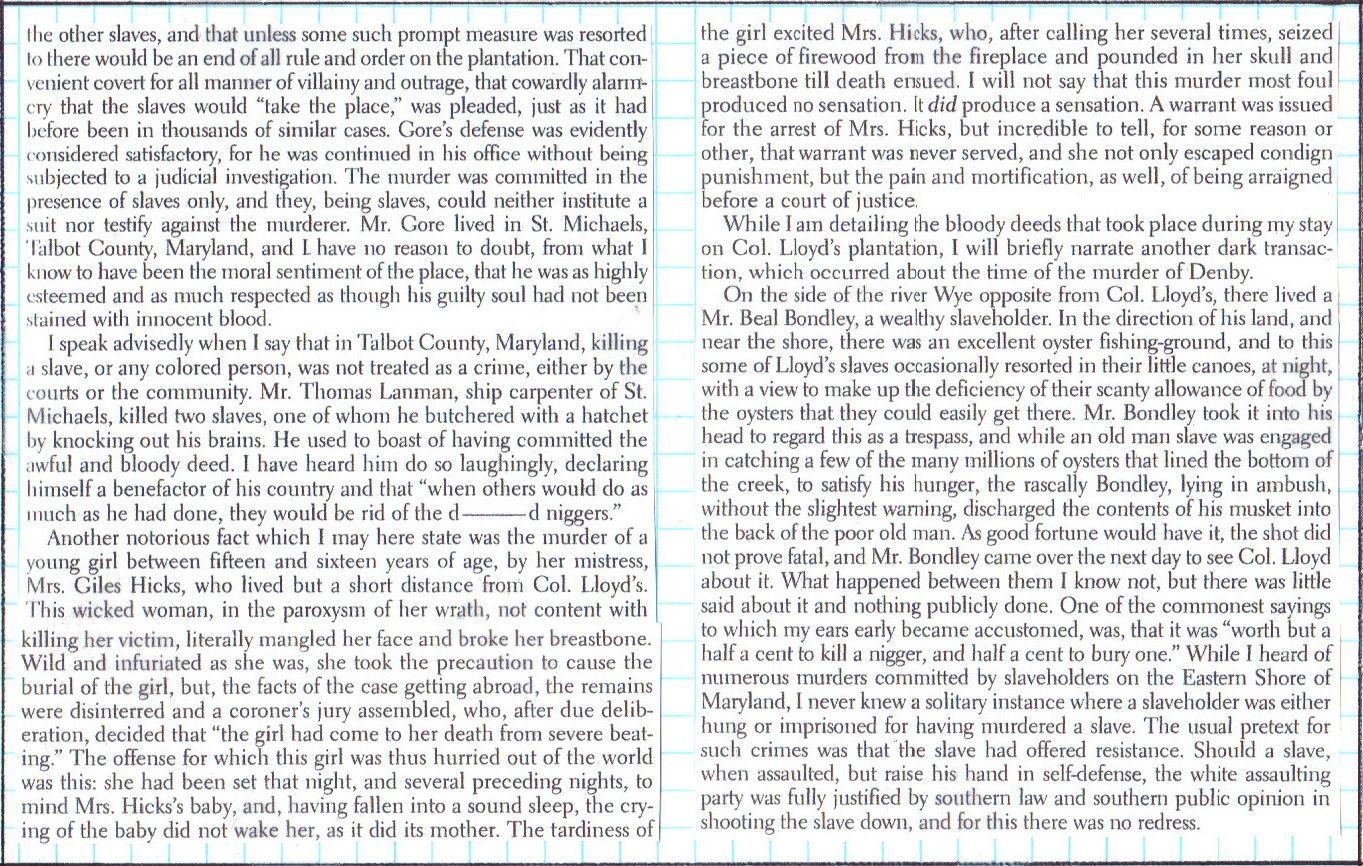
"The Life and Times of Frederick Douglass," by Frederick Douglass, (1892 edition)
https://en.wikipedia.org/wiki/Judicial_corporal_punishment#United_States
Then there was the range of punishments administered to sailors in the Royal Navy ranging from floggings with a cat 'o nine tails to keel hauling.
As Winston Churchill said of the Royal Navy, "Don't talk to me about naval tradition. It's nothing but rum, sodomy and the lash."
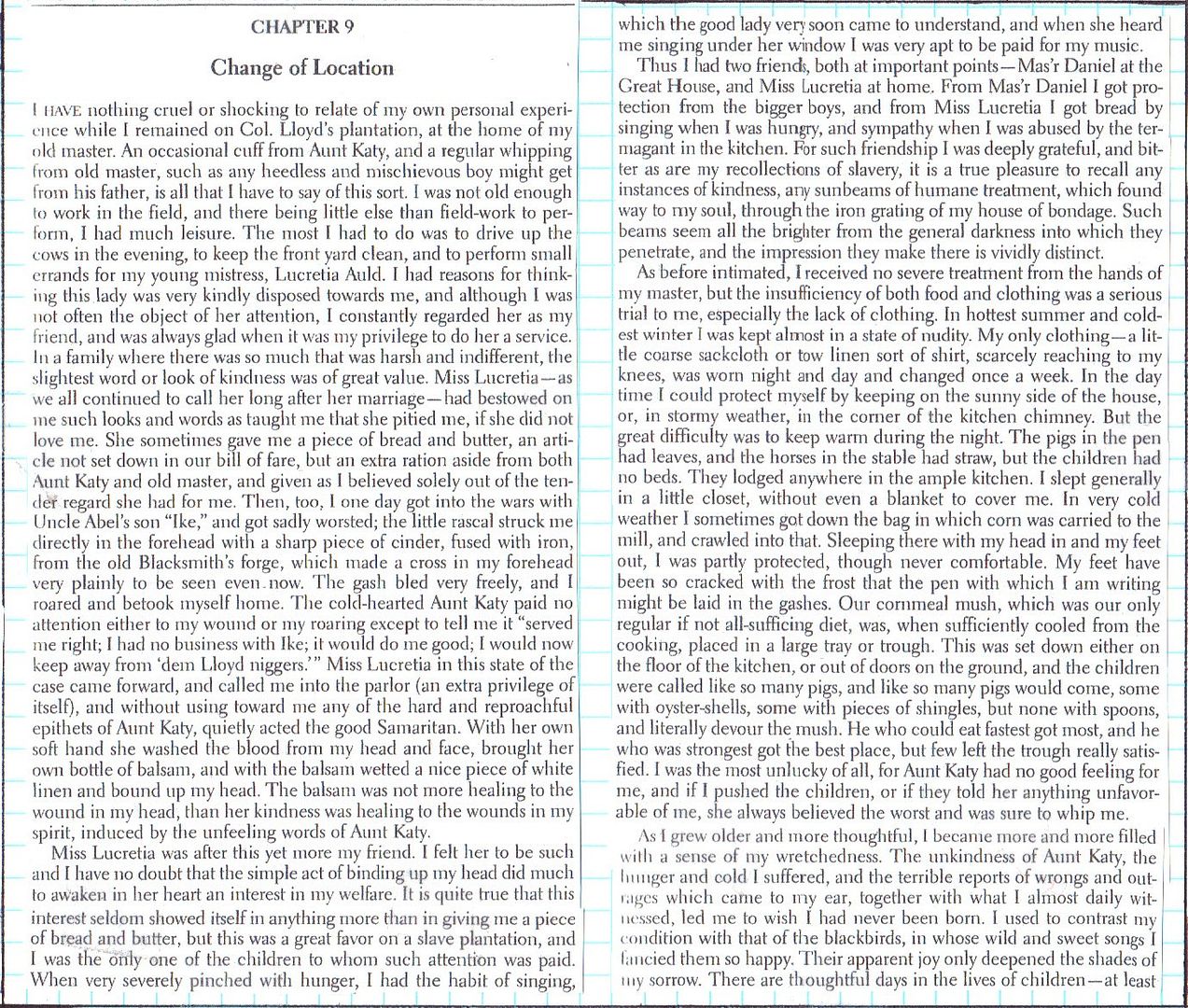
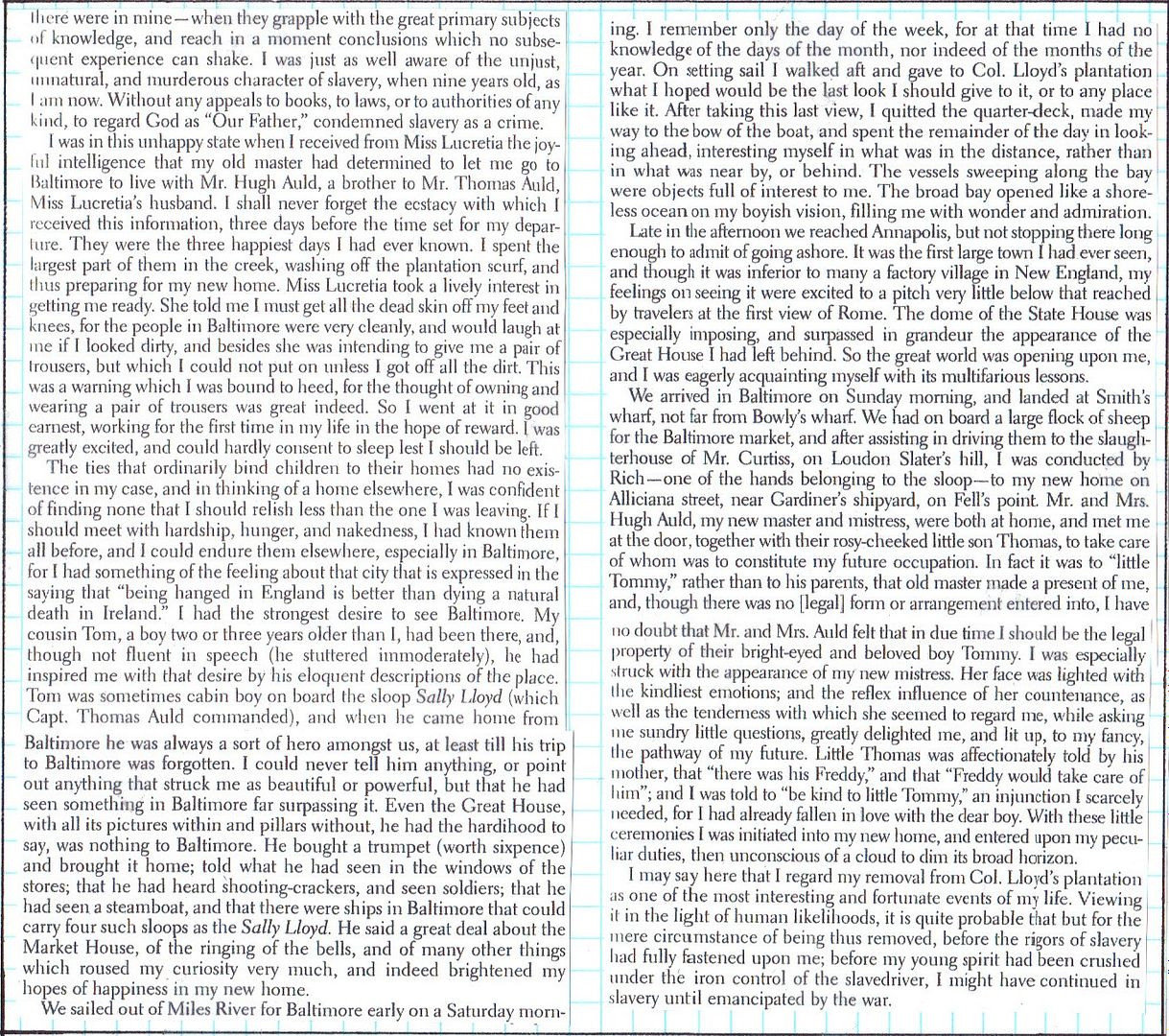
"The Life and Times of Frederick Douglass," by Frederick Douglass, (1892 edition)
He says that if he hadn’t been sent to Baltimore he might have never escaped his bonds until after the war.
But I’m not sure that the war, and emancipation, would have necessarily occurred the way that it did without his eloquent agitation for it.
In the list of those I credit for the demise of the institution of slavery in this country, I place Douglass at or very near the top.
The next two chapters explain how Douglass learned to read, which also required a particular set of circumstances. That is a key factor in his rise to prominence among the abolitionist movement in later years. The Lloyds and Aulds had no idea what they were unleashing by the the simple transfer of a slave to Baltimore.
And a inspiring story it is. Literacy is the key to freedom.
Thank you for posting from Douglass' story. He was a remarkable man.
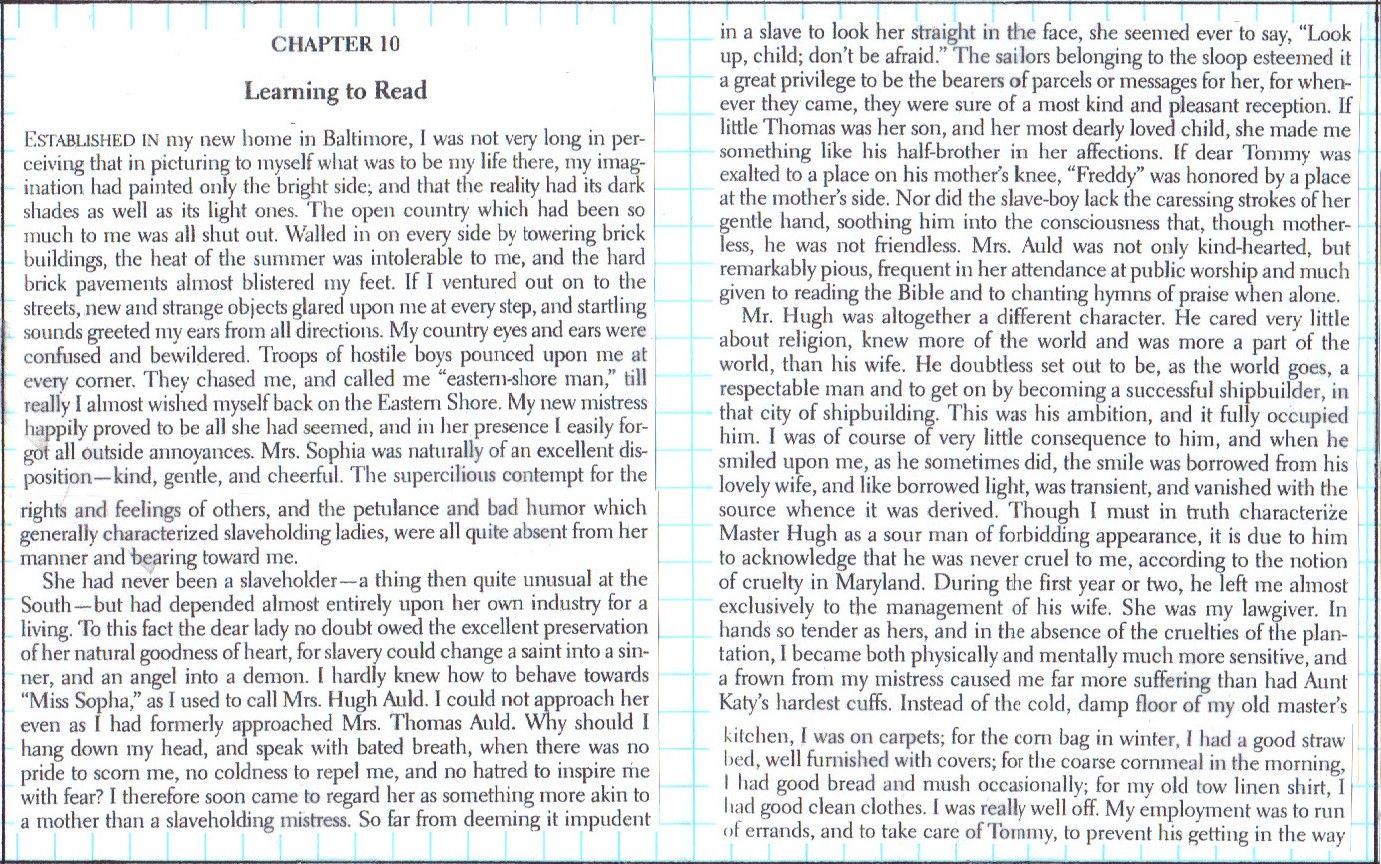
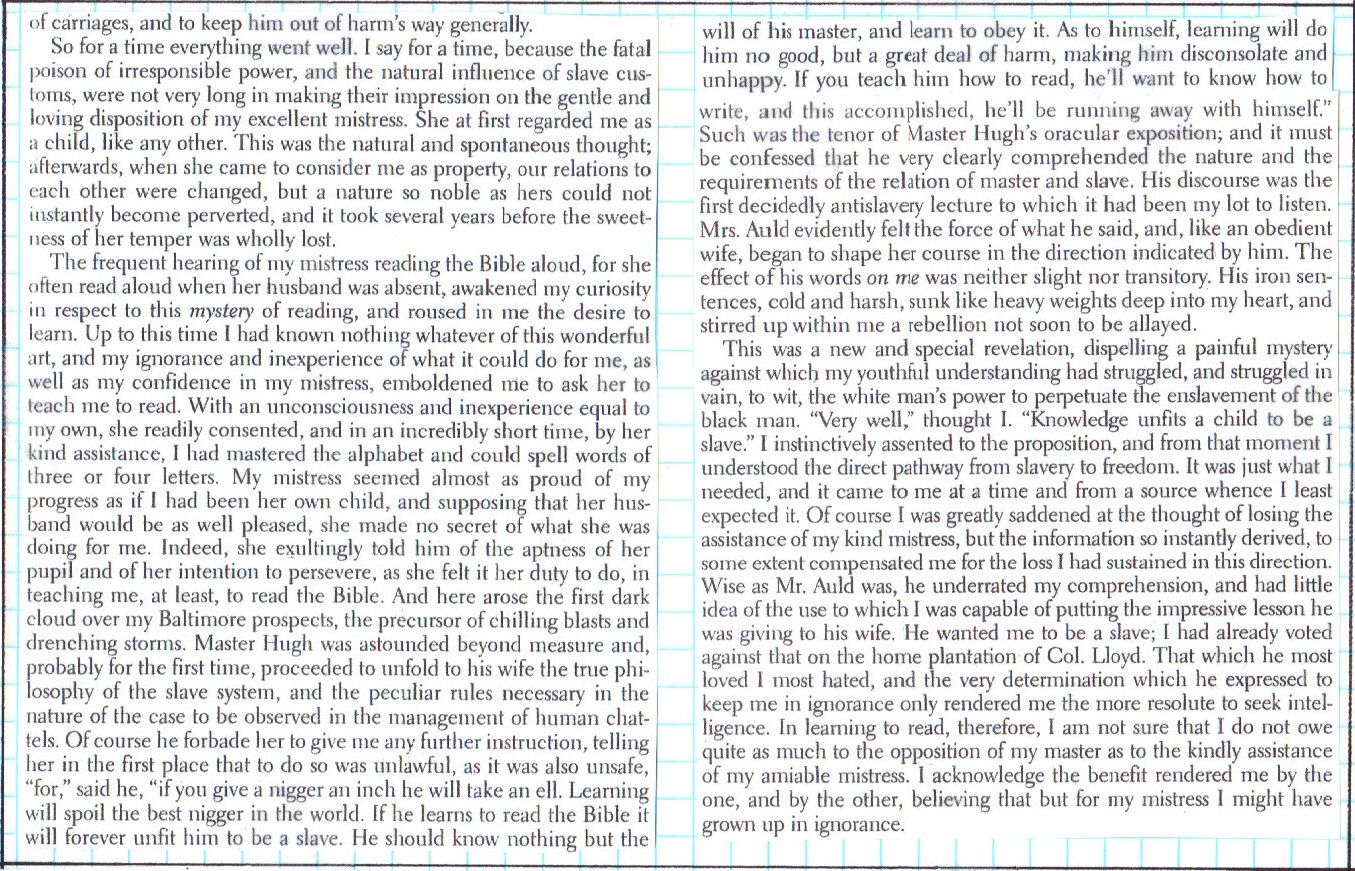
"The Life and Times of Frederick Douglass," by Frederick Douglass, (1892 edition)
My favorite quote from Douglass is:
“Once you learn to read, you will be forever free.” —Frederick Douglass
As a school teacher, I am usually the only one who has done the readings for the class. This makes the job of increasing literacy impossible, of course. I remind them of this quote, spoken by a slave, and point out the irony that a slave took careful note of the importance of reading to freedom and how, today, many who are free are actually enslaving themselves to those who have the true knowledge by shunning the practice of reading.
If only more African-Americans understood this they might rebel against the unholy Democrat/NEA alliance that seeks to keep black kids in dysfunctional schools that do not give them anything close to a 21st Century education. Douglass would be horrified that this is happening 150 years after the abolition of slavery, although he wouldn’t be surprised Democrats are behind it.
Happy 1856!
bump for later reading
Would you please put me on the ping list for this seminar? Thank you.
You are on the list. The first for 2016. Thank you for your interest and welcome aboard.
Would you please add me to your Civil War ping-list.
Thanks so much.
Disclaimer: Opinions posted on Free Republic are those of the individual posters and do not necessarily represent the opinion of Free Republic or its management. All materials posted herein are protected by copyright law and the exemption for fair use of copyrighted works.